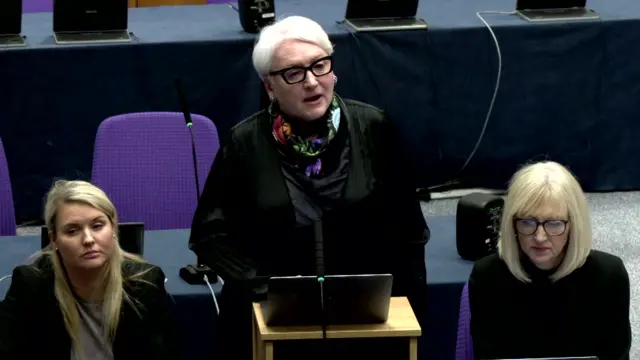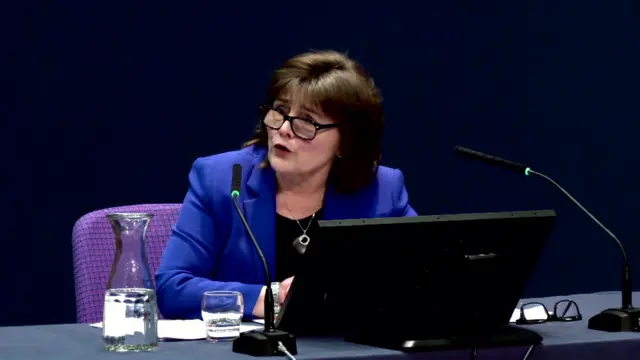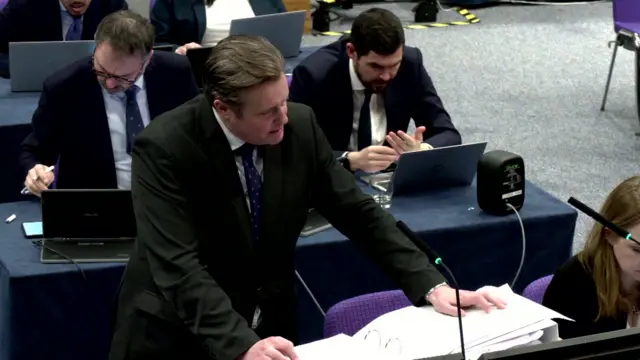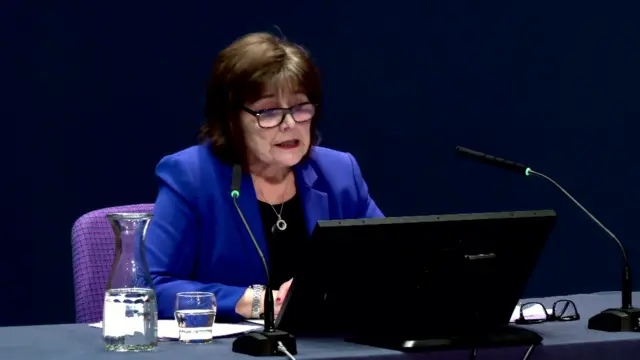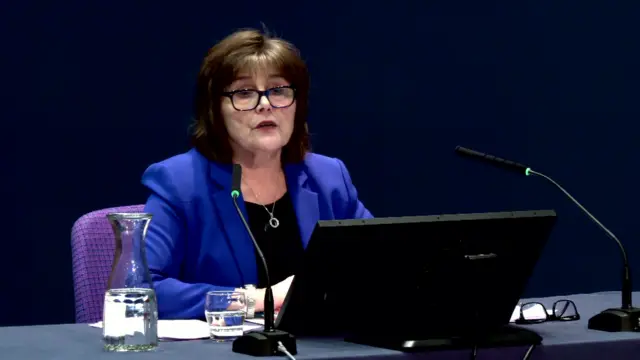Bringing today's coverage to a closepublished at 17:25 GMT 29 January 2024
Thanks for joining today's coverage of the UK Covid Inquiry during its latest hearing in Scotland.
We'll return tomorrow for the questioning of former Scottish Finance Secretary Kate Forbes and former Deputy First Minister John Swinney.
You can read our report on today's events here, and head here to remind yourself of why the UK Covid Inquiry is currently in Scotland.
Monday's coverage was brought to you by Gabriela Pomeroy, Ashleigh Keenan-Bryce, Craig Hutchison, Graeme Esson, Paul McLaren and James FitzGerald.


